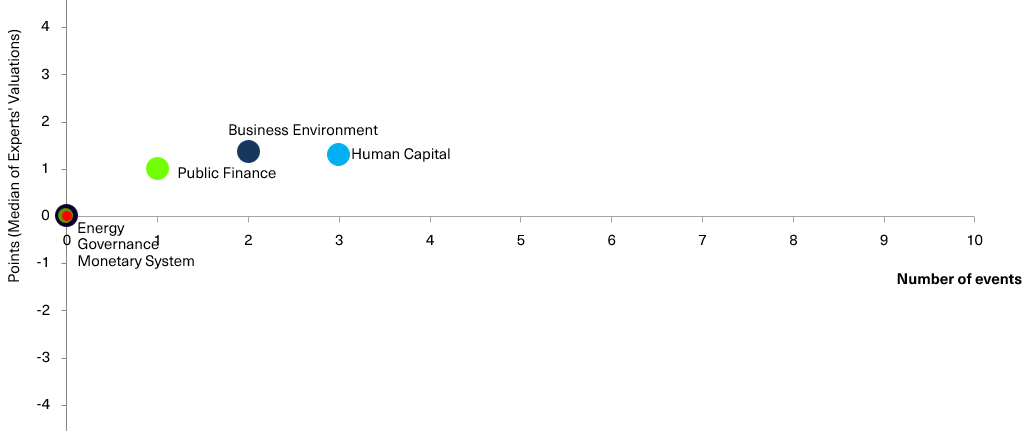In issue 198 (issue 191 before the audit) of the Reform Index, 6 changes have been included for the period from October 24 to November 6. The Reform Index for this period is +0.6 points, with values ranging from -5 to +5. In the previous round, the Index was +0.9 points. The deregulation law on business civil liability insurance became this issue’s key reform.
Chart 1. Reform Index Dynamics
Chart 2. Reform Index and its components in the current round
Law on business civil liability insurance in place of fire inspections, +2.0 points
Law 2655-IX became another step in the direction of deregulating business and aligning Ukrainian laws with European legislation.
Twenty years ago, the Cabinet of Ministers adopted Resolution No. 1788, introducing mandatory insurance of business entities’ civil liability for damages caused by fires and accidents at high-risk facilities. However, no such mechanism existed for small- or medium-risk enterprises.
The new law allows them to voluntarily replace fire and technogenic safety inspections with insurance. In that case, the checkouts will occur once every ten years for insured entities of insignificant risk and once every six years for medium-risk ones.
This means fewer contacts with controllers for businesses; an opportunity to reduce corruption risks, optimize the staff, and save money for the State Emergency Service; and guaranteed damage coverage by the insurance companies for the state. Previously, the burden fell mainly on local and state budgets. The perpetrators often could not make up for the state’s expenses due to bankruptcy or avoided it through court proceedings.
Information about the Reforms Index project, the list of Index experts and the database of the regulations assessed are available here.
Chart 3. Value of Reform Index components and number of events
Reform Index from VoxUkraine aims to provide a comprehensive assessment of reform efforts by Ukraine’s authorities. The Index is based on expert assessments of changes in the regulatory environment in six areas: Governance, Public Finance, Monetary system, Business Environment, Energy, Human Capital.
Attention
The author doesn`t work for, consult to, own shares in or receive funding from any company or organization that would benefit from this article, and have no relevant affiliations







